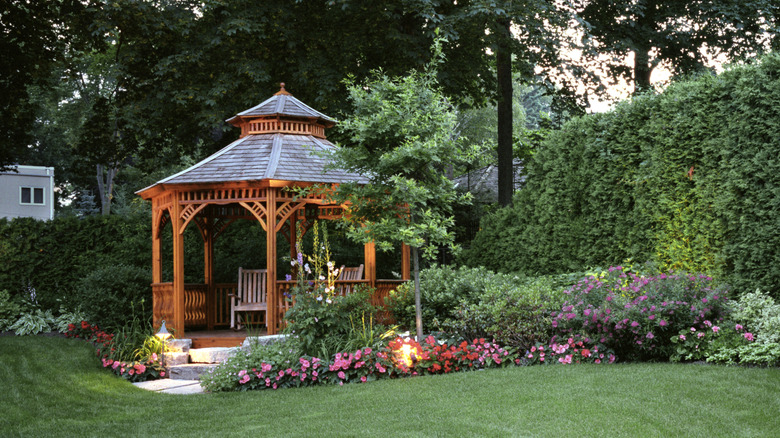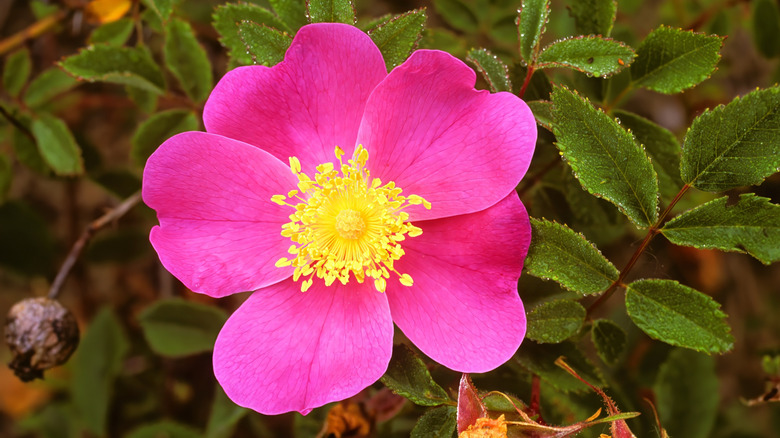Attract Pollinators & Birds To The Garden With A Flowering Shrub That Also Provides Privacy
If you're working with a relatively small yard, you need every plant you grow to fulfill multiple tasks. To make the best use of your space, plants in privacy hedges should also provide food for pollinators and songbirds while growing stunning blooms for you to enjoy. The Carolina rose (Rosa carolina) does all this and more, making it a perfect addition for landscapes, hedges, and gardens.
These North American native rose bushes are not only host plants for moths, but are also huge hits with butterflies and bees. Their stems even provide nesting spots for many native bee species. During the spring and summer months, they also add color and fragrance to your yard thanks to their bright pink and yellow blooms. After the roses' beautiful blooms have faded, the rose hips are a tasty winter snack for hungry birds. And with a height and width of around 5 feet, a line of the thorny shrubs creates a perfect privacy hedge.
Caring for Carolina roses
Hardy in USDA Hardiness Zones 4 through 9, Carolina roses thrive in full to part sun locations. While they aren't overly picky about their growing medium, they grow best in well-draining soil and appreciate regular watering to keep their soil moist. Just be sure to avoid overhead watering, as that can encourage disease and fungal issues. As with many other types of roses, you can prune your Carolina roses in late winter or early spring if needed. If left to their own devices, Carolina roses are prone to suckering and forming dense thickets, which could be a positive or a negative depending where you are growing them.
Considering all the ways pollinators and birds can benefit your yard or garden, why wouldn't you want to add a shrub like the Carolina rose to encourage them to visit more often? Pairing the shrub with other bird and pollinator friendly plants that grow in similar conditions is a great way to make your garden even more of a wildlife haven. These could include berry bushes, flowers like beardtongues, and even native grasses.

